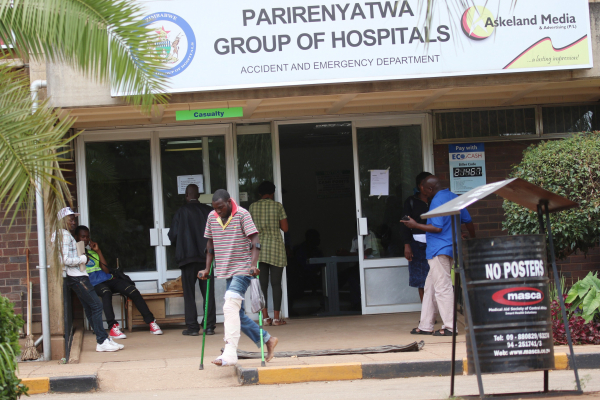Hospitals in Zimbabwe face collapse as treatable illnesses claim lives – nurses group sounds alarm

Nurses in Zimbabwe have issued a stark warning regarding the deteriorating state of the nation’s public health system, claiming that citizens are succumbing to easily treatable diseases due to a severe lack of essential resources.
In a statement on this week, Zimbabwe Nurses Association (ZINA) president Enock Dongo highlighted what the association described as a “national emergency,” asserting that the continued neglect of public hospitals has led to widespread disrepair and an inability to provide adequate care.
According to ZINA, public hospitals are critically short of basic medication, forcing patients to purchase their own drugs and supplies.
The association contended that deaths are occurring not due to a lack of medical expertise, but from the absence of fundamental medications, equipment, and resources.
“We challenge anyone in denial to visit Harare Central Hospital or any provincial hospital-today. Ask yourself if you or your loved one would receive the care you deserve.
“It is only when you or someone close to you falls sick that you fully realise how broken our healthcare system has become,” the association stated.
“Public hospitals have no medication. Patients are told to buy their own drugs or supplies for things that should be readily available. People are dying from diseases that are easily treatable.
“These are not deaths due to lack of medical knowledge or skill-but deaths caused simply by the absence of basic medication, equipment, and resources.New members who wish to receive daily news updates from Ignite Media Zimbabwe should WhatsApp ‘join’ to 071 9999 012.
“Facilities are deteriorating fast. There are no blankets in many wards as we approach winter. Some hospitals don’t even have proper windows. X-ray departments are not functioning. Diagnostic centres are almost non-existent.
“Basic lab services are unavailable. Nurses are unable to conduct essential tests, and the sick are being referred to private hospitals they cannot afford. They remain in public wards, in pain, waiting, suffering.”
ZINA cited the “impossible conditions” under which nurses are working, forced to improvise daily to preserve lives.
The association has urgently called upon the Government of Zimbabwe to prioritise the health sector, equip hospitals, and support nurses to prevent further loss of life.
Last month, Youth Empowerment Minister Tinoda Machakaire publicly voiced significant concern regarding the state of Zimbabwe’s public healthcare system, directly implicating President Emmerson Mnangagwa’s administration for allegedly disregarding “important realities on the ground.”
Following a personal visit to an unnamed public health institution, Machakaire posted on X, suggesting a profound disconnect between perceived progress and the daily struggles of citizens.
He described the conditions he witnessed as “deeply moving” and indicative of the “serious challenges” facing many Zimbabweans, confirming that the increasing public outcry over healthcare accurately reflects the experiences of numerous citizens.
Machakaire then directly appealed to the President, urging him to personally visit public health institutions to gain firsthand insight into the dire situation.
Zimbabwe’s healthcare system has long grappled with substantial challenges, often attributed to prolonged economic instability, corruption allegations, and administrative shortcomings, consistently failing to meet the Abuja Declaration’s recommendation of allocating at least 15% of the national budget to health.




